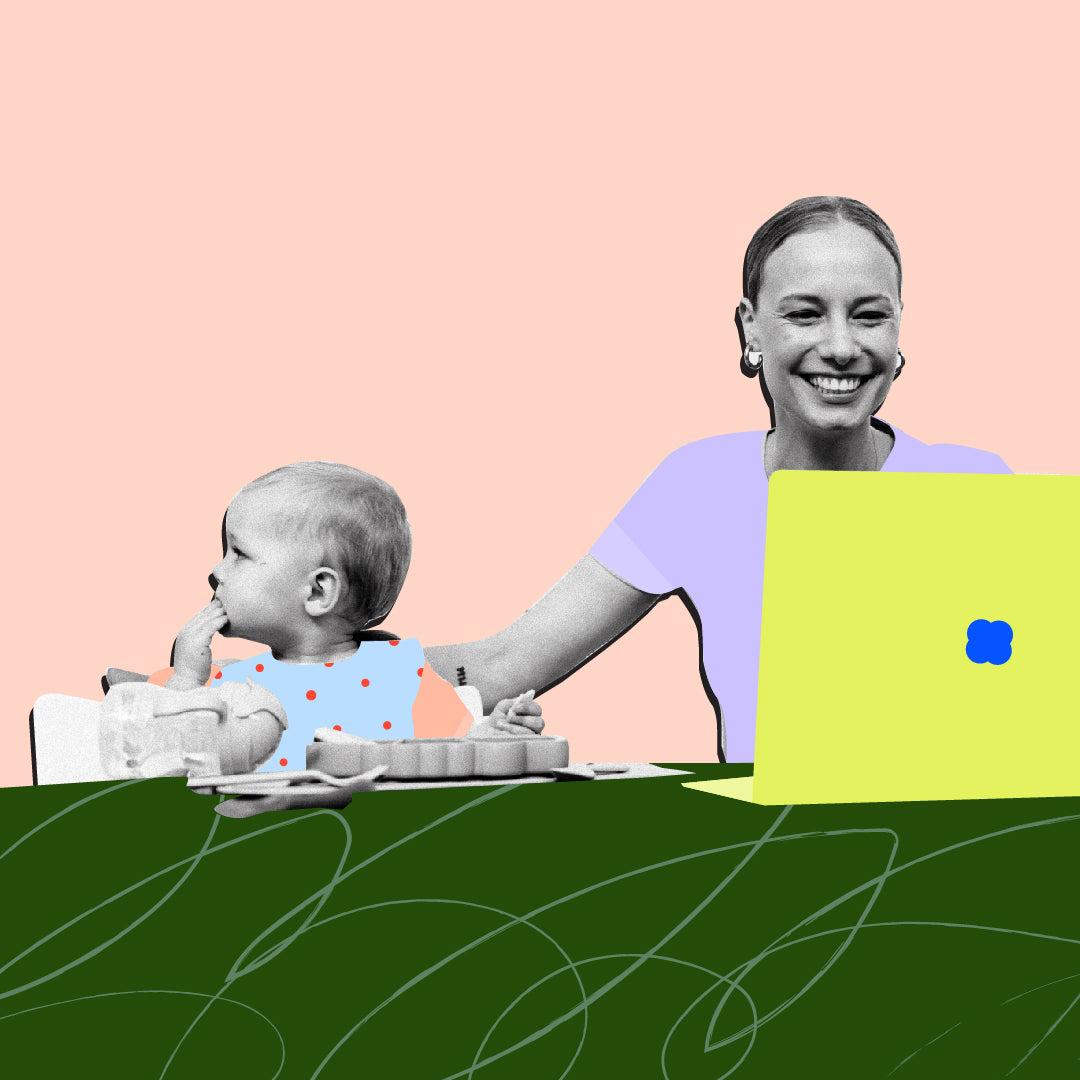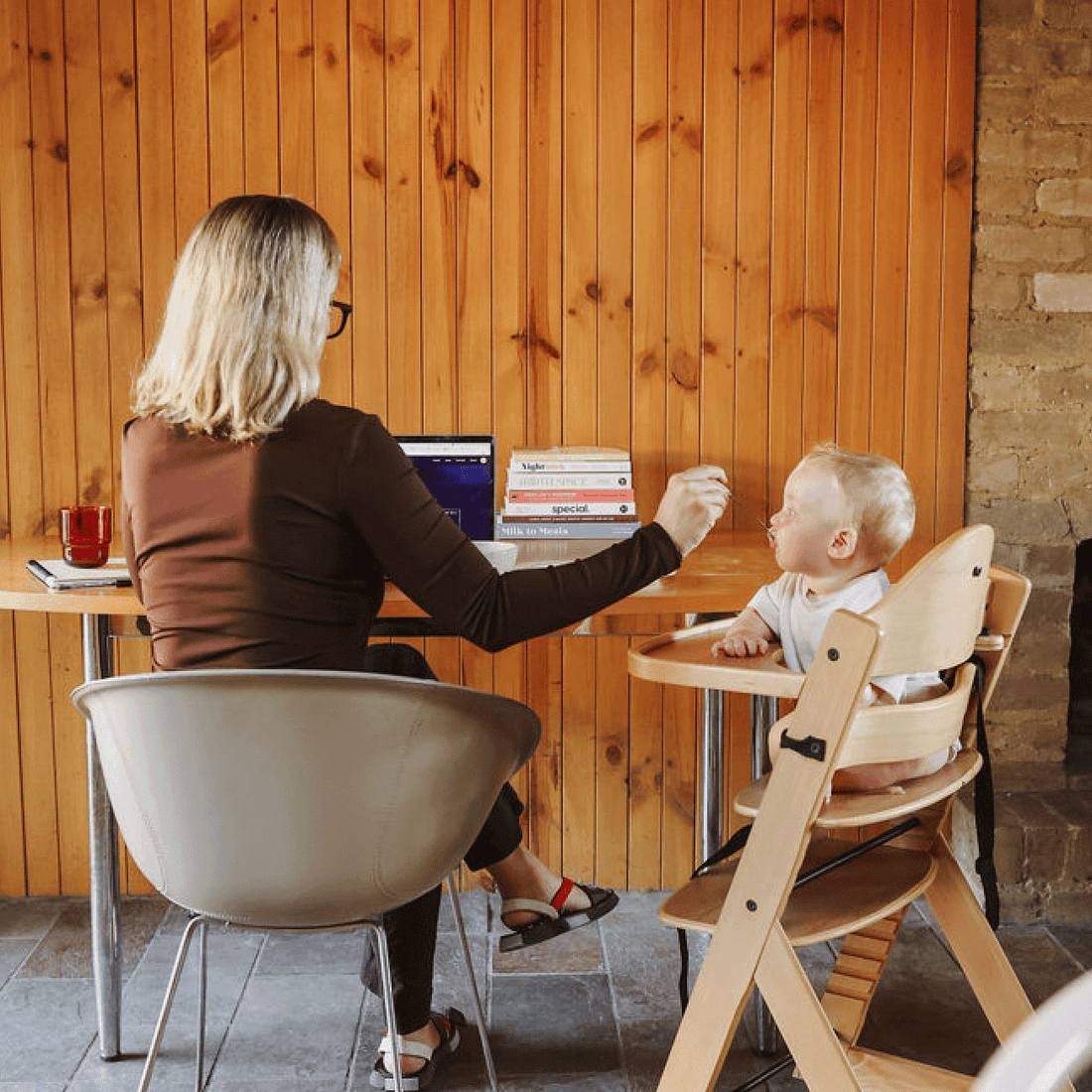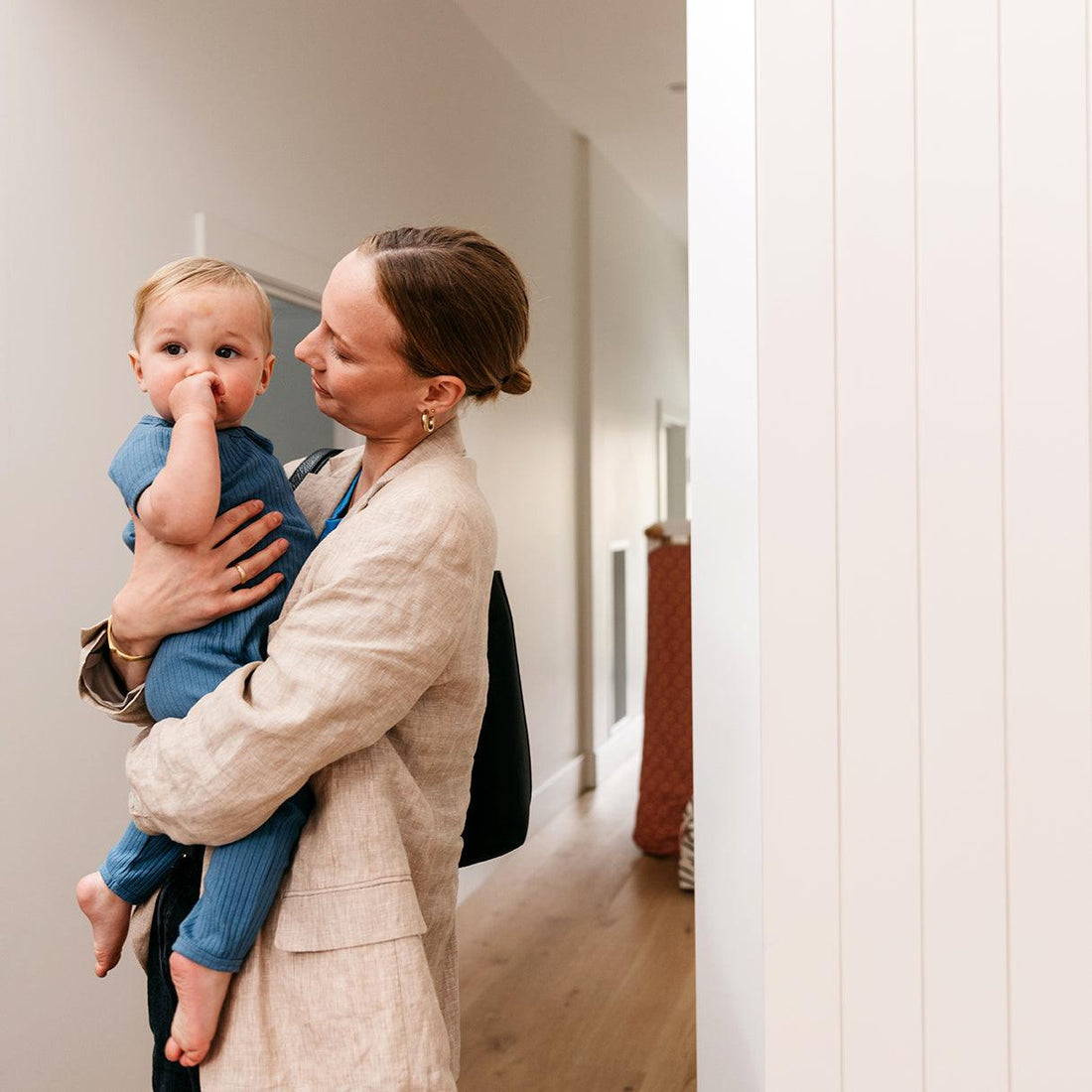Recently, The Cut published an article on the rise of parents opting out of daycare while still managing full time work. Understandably, it popped off (grab a cuppa and strap in for the comment section), and despite it being USA-specific, all the points really hit, because Australia, as we well know, is no poster-girl for childcare Narnia — and we’re not just talking about the revolving illnesses either.
Let’s look at the stats: Recent research from the Mitchell Institute found that 35% of the population live in what has been coined a “childcare desert”, where there are more families and children than there are centres., and a further 1.1million live in areas (remote or regional) where there is no childcare at all. Then there’s the staff shortages leading to capped class numbers, which makes landing a spot feel like a lottery win — except you lose money. And there stands the big pink elephant: the exorbitant cost, all which, according to the ABS, contribute to a decline in enrolling in preschool education. Somewhere along the way, daycare, the very thing that was meant to alleviate some of the pressure, just got… hard.
So The Cut article didn’t shock me. We’ve all been through Covid times, the homeschooling and no daycare that had to run simultaneously with full time work. We made it work — and we all survived. And I think as hard as it was, for some people it illuminated another path that they hadn’t thought was previously possible, where they could do paid work, full time, and also look after their kids. Throw in a cost-of-living crisis, and all the daycare roadblocks (illness, admin, logistics, emotions) and suddenly that path looked manageable.
The other reason the article didn’t shock me is because I’m living that life — and have been for five years. I’m a full-time mother, a business owner, and a freelance journalist. And, I’m one of a growing number of people in non-traditional work environments who are choosing to have the two jobs simultaneously. Yes, it’s patchwork, and it’s certainly not perfect, but our family is doing it nonetheless.
"If I happen to mention struggling with the work/parent juggle, it’s met with 'you should put your kids in daycare', as if that will solve everything."
But, why?
To make it clear I’m not in anti-daycare. There is so much research to support the positive benefits of a daycare environment for social and emotional wellbeing of children and it’s enabled women to re-enter the workforce in a way that wasn’t previously an option for us. It’s the right choice for so many families in more traditional work environments but it just wasn’t the right choice for us in our unique situation. And that’s what it came down to for us: it was a choice, just like how I fed my sons or whether I chose to sleep train or not. But for some reason, of all the choices I’ve made in my parenting life, this is the one that is the most divisive, and and the one that compels people outside my household to voice their opinion the loudest. To the point that I rarely tell people because it’s usually met with shock or defensiveness, and I just don’t have the energy to feed judgement. And, if I happen to mention struggling with the work/parent juggle (like we all do), it’s usually met with “you should put your kids in daycare”, as if that will solve everything. Which, as any daycare parent would tell you, it does not, but there is a distinct lack of empathy because it was my decision to have my kids at home. Parenting and judgement about, well, everything sadly go hand in hand but this was something I was completely unprepared to defend.
About that unique situation: my partner, Phil and I have both been freelance since 2016. So by the time my first son arrived in 2018 we were well versed in the chaos and unpredictability of freelance life, and were also used to working flexibly. We also each own businesses, and while both of these things are a privilege and have a great deal many “pros” (flexibility, freedom of location) they also carry the weight of financial insecurity, no paid mat leave and plenty of other uncertainty.
The decision not to send our boys to daycare was partly practical but also a conscious choice for our family and how we wanted it to be. We had two parents at home working for themselves, so we were physically available, but also the cost of daycare was such that it would put more financial strain on our family to actually send them to daycare (because we’d then have to earn extra money to account for that). That was the practical part.
On the emotional side, we just wanted them home with us. We wanted to be able to travel with them and grow with them, and include them in our everyday life — the idea of this life was partly why we decided to have kids, and set ourselves up in a flexible working environment beforehand. At 37, I had children relatively late, and I was ready to be in that season with them because I knew I had only five years of that time (before school) and five years is a heartbeat. By the time my second son arrived, it was Covid, so while that had its own challenges, working with two kids at home was just normal life to us.
Annika, a creative director is in a similar situation to me, with two children at home, two parents at home with both a business and a freelance career. She explains that childcare was never really an option for her family either. “We always wanted to create a family structure where we got to spend as much time as possible with our children at a young age and that felt right for us,” she tells me. “Of course this was easier when we had one child and could work through her naps, but as she’s grown it’s just pushed us to look at things differently and change the structure of our work, rather than look externally. To be honest I think sending them to daycare would’ve been more of an outlay financially.” Chantelle, a photographer and mother-of-two, whose husband is also a photographer has chosen this path too: “I just didn’t see it as a need, because I was able to be at home with her, and I wanted to spend as much time as possible with her.”
The common thread between us all is that we’re all freelancers or business owners (often both) with two partners at home, something which, pre-covid may have seemed wild, but now errs on the side of normal.
-v1714621058386.png?1000x1000)
But, how?
I wish there was an easy answer to how we do it — but there’s no magic pill. Like every part of my parenting it’s a work in progress and at no time do I ever think I’ve nailed it. But then — what Mum does? Is anyone in any modern family sitting back thinking that they have the ideal situation? That they’re giving the perfect amount to both their kids and their work? No, everyone is just trying to make the best of the situation they have and hope it resembles something like the life they had in their mind.
For our family unit, the “how” is ever-evolving. When we had just one child we worked when he napped, grabbing hours where we could. This was manageable for the first two years but then I had my second, during covid, at precisely the time I launched a business (10/10 do not recommend). This changed the game completely, and even now my “work day” really begins when they go to sleep. This is not ideal, and certainly not long-term sustainable, but it’s life right now. Generally, Phil and I tag team both parenting and work and prioritise whoever has the more urgent deadline. Post-covid we also have the gift of regular grandparent help, with my mother-in-law looking after my eldest one day a week. As both my business and my boys have grown my partner also takes both kids to visit their grandparents once a week, which is my get-down-to-business work day. We negotiate time on a weekly basis, and if we both have something on, we just work out who gets the priority. Usually one of our deadlines will have some flexibility.
For Chantelle, she took on a primary carer role in her situation, working her (reduced) photography schedule around her mothering and enlisting grandparent help where she could. Now, at two, her eldest goes to daycare once a week so she can also spend time with her one-year-old.
Annika and her partner have also tried on different versions of this life to make their situation work. “How we make it work is…TBC. At first my partner took more of a full time role and I was essentially on our version of maternity leave. I was primarily parenting with snippets of work while she was napping. As she started getting bigger, I wanted to return to more work and was doing one day a week while my partner looked after our daughter. Mind you, it was still not a full day given that we were all in the same house and she was still breastfeeding so it was still interrupted, and I just adapted to the new rhythm.” Since then they’ve split the working week in half, in thirds, had a one-day-a-week nanny, had (some) grandparent help and have landed on a fluid structure of a work week split with Annika working two days and her partner three, and some additional nights. “Essentially we could be working every night but we try to set some really clear boundaries about only working 2-3 nights a week, never on fridays or the weekend because that’s where we spend time together as a family. We’re working it out…it’s a hard juggle for us and the payoff is always worth it.” Worth it or not, Annika notes that like me, her decision compels many to comment “It’s like your experience isn’t valid because it’s your choice to work and to take care of your kids. The sentiment is ‘if you can’t manage your work in time then you should be looking at childcare’.”. While others will be listing all the things her children (and mine for that matter) are missing out on without the daycare experience or how it will affect them socially (FYI: it hasn’t for any of our children). “I think it’s important to acknowledge that just because we’ve chosen something doesn’t mean that our experiences aren’t valid and we’re still deserving of the same kind of respect and support as any other parent,” says Annika.
Is it worth it?
For me, what Annika said really sums it up: yes it’s hard, but for us, it continues to be worth it. Is it easy? Hell no. But is parenting ever? Yes, I’d love more time to myself, yes I’d love not to work every night, but I’m also not willing to give up the time for that. So would I do it this way again? Absolutely. Like all seasons of parenting it’s so big when you’re in it, but then, it changes and your whole world shifts again.
My eldest, Yuki, started school this year, and my youngest has started sessional kinder for two days a week. Writing this, the newborn phase seems like a distant memory, but equally I feel really emotional that the time went so quickly and wish I had more time with them. At the same time, I’m also so excited by the prospect of writing more than a paragraph without someone coming to sit on my lap to “work” with me. I feel all those things at once, the push-pull, the exhaustion and fatigue laced with the joy and the love, because isn’t that motherhood? The books, and the articles can only take us so far, and the rest we have to work out for ourselves, which is exactly what we’re doing. There is no “right” way, just different ways of writing our own story of motherhood.
























